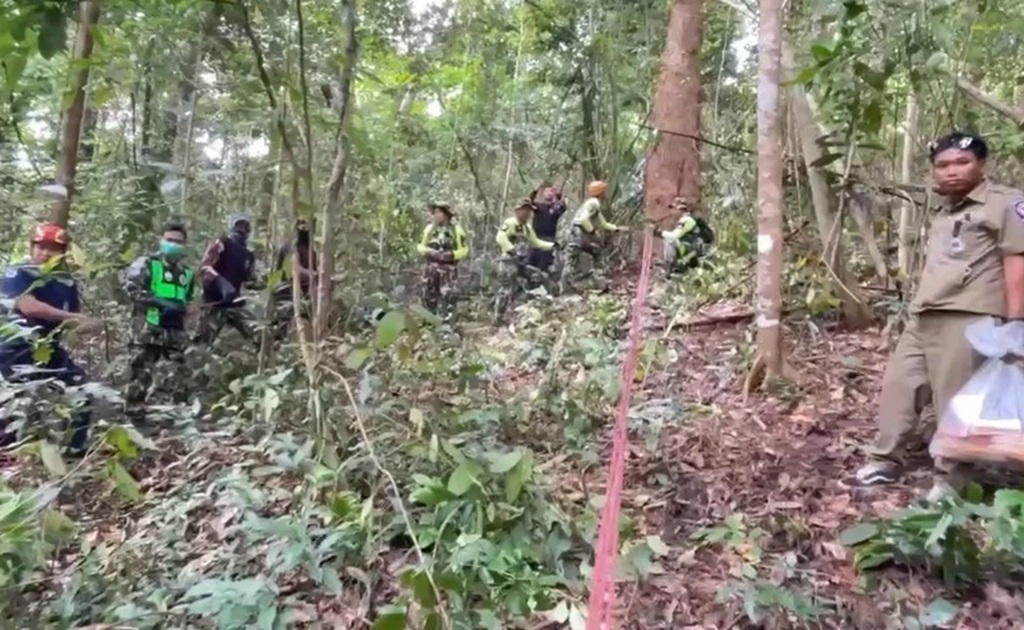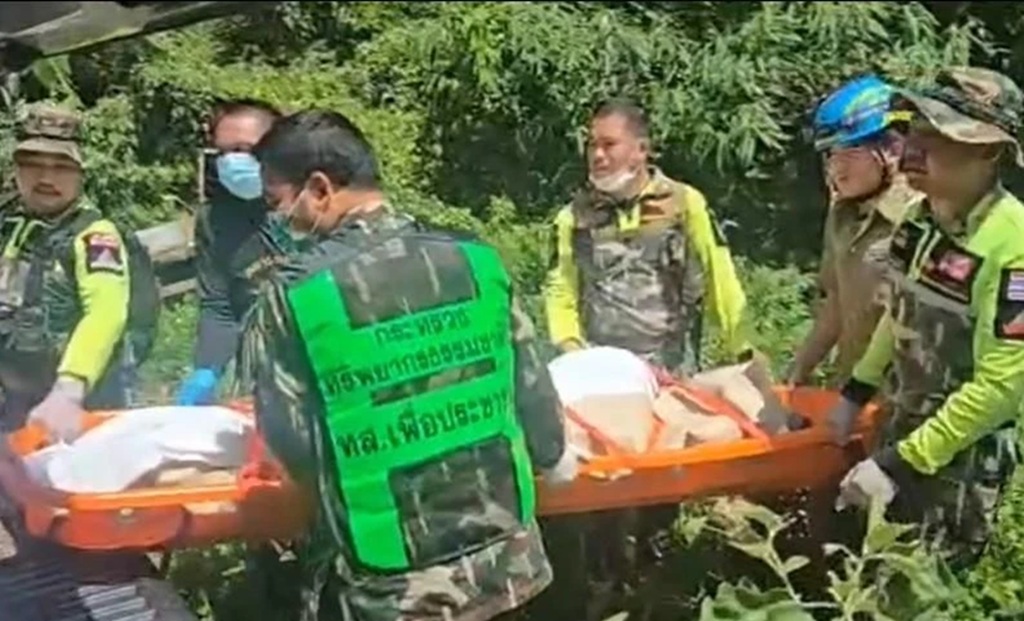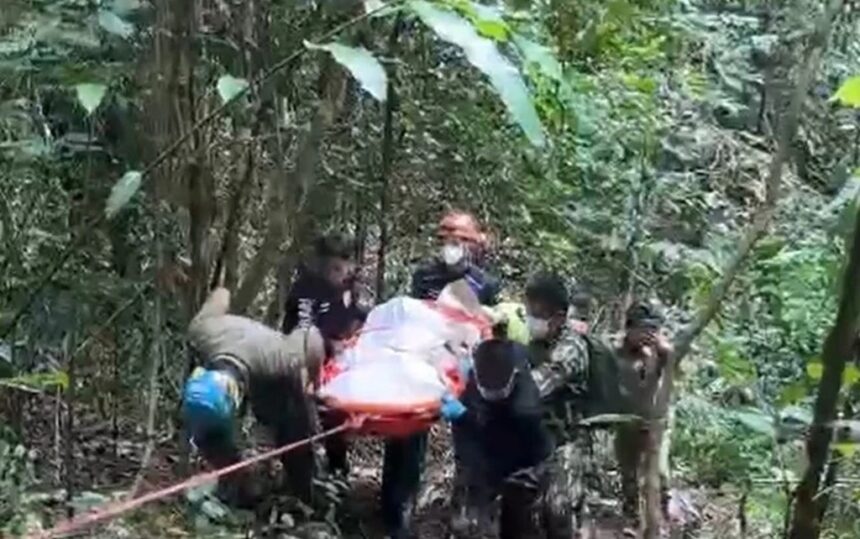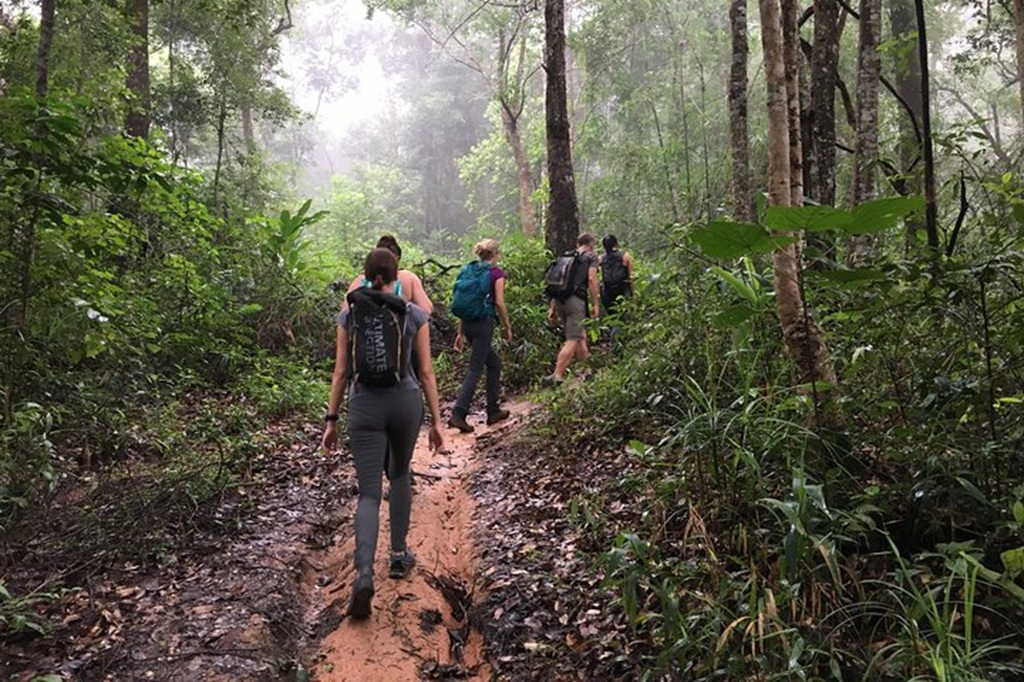CHIANG MAI – A grim discovery was made in the forest of Doi Suthep-Pui National Park in Chiang Mai when locals came across the body of an unknown man. Authorities believe he had used a vine to take his own life. The deceased was identified as a man from Chonburi who disappeared from home after his wife ended their relationship.
Police from Phuping Rajanivej station, a forensic doctor from Maharaj Nakorn Chiang Mai Hospital, evidence officers, and a rescue team entered the remote part of the national park to investigate and recover the body.
The site was difficult to reach, requiring a trek through dense forest. The team had received an alert from locals who found the remains, but because of the late hour and rough terrain, officials had to return the next day for a thorough check.

At the scene, the man’s body was in an advanced state of decay, with only the skull of the head and a strong odour present. Nearby lay a backpack. The initial medical assessment suggested the man had tied a vine around his neck and asphyxiated.
He was believed to have died two to four weeks prior. The missing skull tissues appeared to have been eaten by insects or wildlife. After collecting evidence, the rescue team spent over an hour bringing the body out of the forest for a detailed autopsy at the hospital.
Police Colonel Manatchai Intuean, head of Phuping Rajanivej station, confirmed the dead man was Peerapat, also known as “Tao,” aged 31, originally from Samut Prakan. He had been reported missing to Nong Prue police in Bang Lamung, Chonburi, on 12 July after leaving his residence. His body was finally found in the Chiang Mai forest.

Later that morning, police received a call from a 28-year-old Bangkok woman named Min, who identified herself as Peerapat’s wife.
The couple had been legally married and together for six to seven years. On 12 July, after an argument, Min ended their relationship, which left Peerapat upset. He left home with just a backpack, leaving his phone behind. He sent farewell messages to Min and some friends.
On 13 July, Min got a call from an unknown number, but missed it. When she called back, a legal officer from the Chiang Mai police answered, saying that a man named “Tao” had borrowed the phone. After that, there was no further contact.
On 3 August, Min learned that a body had been found in the national park. She reached out to the local village head, who showed her photos and the belongings found with the body. She confirmed they belonged to Peerapat.
This sad story highlights the pain of loss and the efforts made by family and authorities to find answers. If you or someone you know needs help, please reach out to support services.
Doi Suthep-Pui National Park
Doi Suthep-Pui National Park sits just northwest of Chiang Mai in northern Thailand, covering around 261 square kilometres as part of the Thanon Thong Chai mountain range.
The park gets its name from the hermit Sudeva (also known as Prarusiwasuthep), who is said to have lived on the slopes of Doi Suthep more than a thousand years ago. It officially became Thailand’s 24th national park in 1981.
The park features three main peaks: Doi Suthep, which reaches 1,676 metres, Doi Pui, the highest at 1,685 metres, and Doi Buak Ha. As you travel through the area, you’ll notice the landscape changes. Lower parts of the park are covered in deciduous forest, while higher sections support lush evergreen and cloud forests.
This variety supports a wide range of wildlife, including over 2,000 different types of ferns and flowering plants. Birdwatchers often visit to spot some of the more than 300 bird species found here, such as black-headed greenfinches and purple cochoas.
Wildlife highlights include the unique Doi Suthep bent-toed gecko, local macaques, barking deer, and the elusive crocodile salamander.
For a richer visit, try a guided walk or arrive early to enjoy the park before it gets busy or too hot. Only 16 kilometres from Chiang Mai, the park makes a perfect day trip for anyone wanting to experience nature, local culture, and adventure in one accessible spot.















